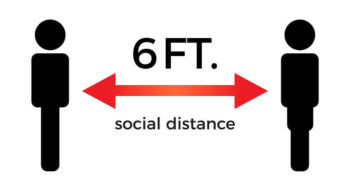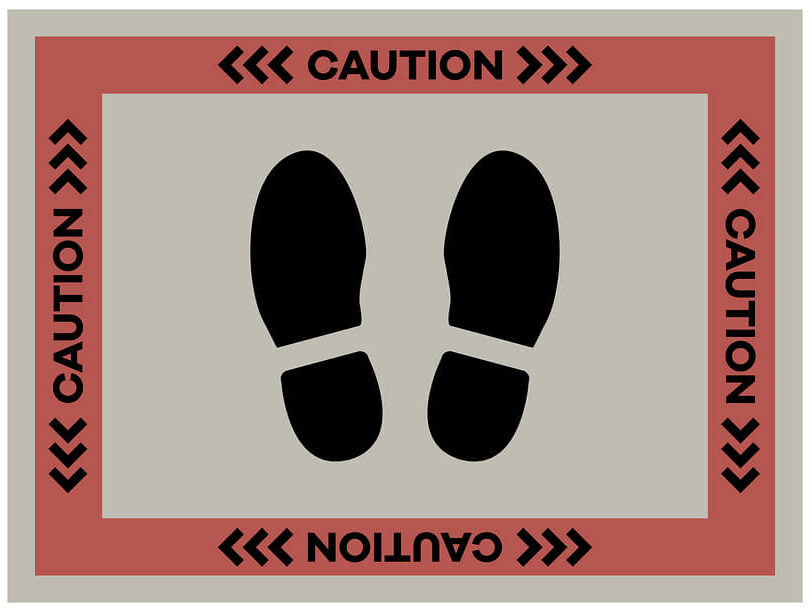Until recently the concept of social distancing, or self isolating, was generally discouraged, especially for people with vision loss. Now it’s a necessity for our ongoing health and well-being. Just a few weeks ago, seeing someone veer off course, to avoid getting too close, or refusing to ride an elevator with you, would have felt very strange. Now we are raising a hand to show appreciation for the consideration of the expanded need for personal space. The wave has supplanted the smile, which is no longer detectable under our masks. And with nose and mouth coverings mandated, many more people are finding their ability to recognize faces is temporarily impaired.

Image of sign for 6 foot social distance.
So if you’re feeling out of sorts, at this point that would be normal, under the circumstances. While sheltering in place to protect your health, don’t forget about your well-being. You may be having trouble thinking clearly or finding motivation, and that’s okay, your brain is trying to recalibrate. Help the process by being kind to yourself, and to others. This applies whether you are on your own, taking care of family, or being cared for. It would be nice if we could return to the way we were before the pandemic, but that seems unrealistic for anytime soon. We are instead heading toward a new state of “normal.”
Living with vision loss may add an extra degree of difficulty to the process, but we have already developed and exercised many of the skills that will help carry us through this period of change. The capacity to recover is rooted in our willingness to adapt, adjust, and accept that life is going to be different. It’s like anything you practice, the more you do the better you get. We also know to stay present – dwelling in the past or on the future, is never constructive. When things are looking dark, we can refocus to a brighter outlook by finding gratitude.
Here’s more content on OE to help the adjusting process:







